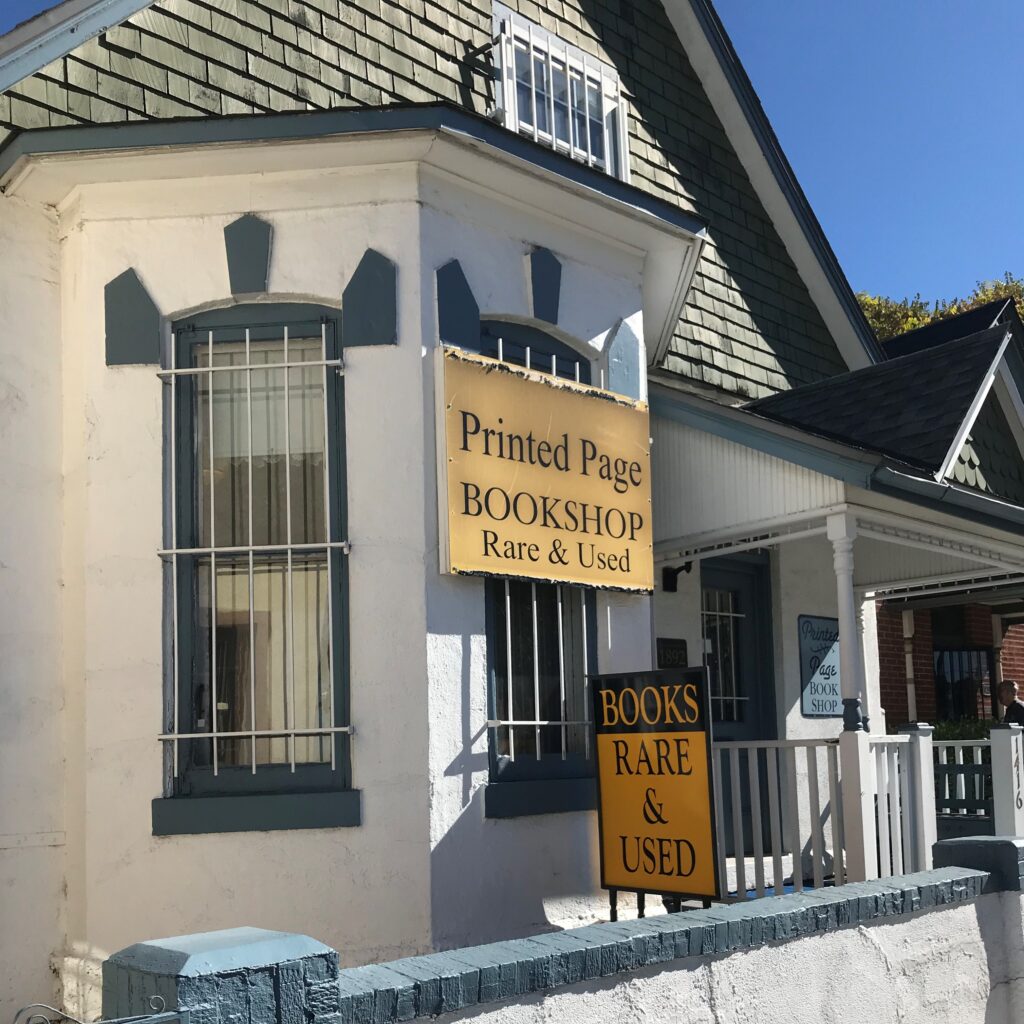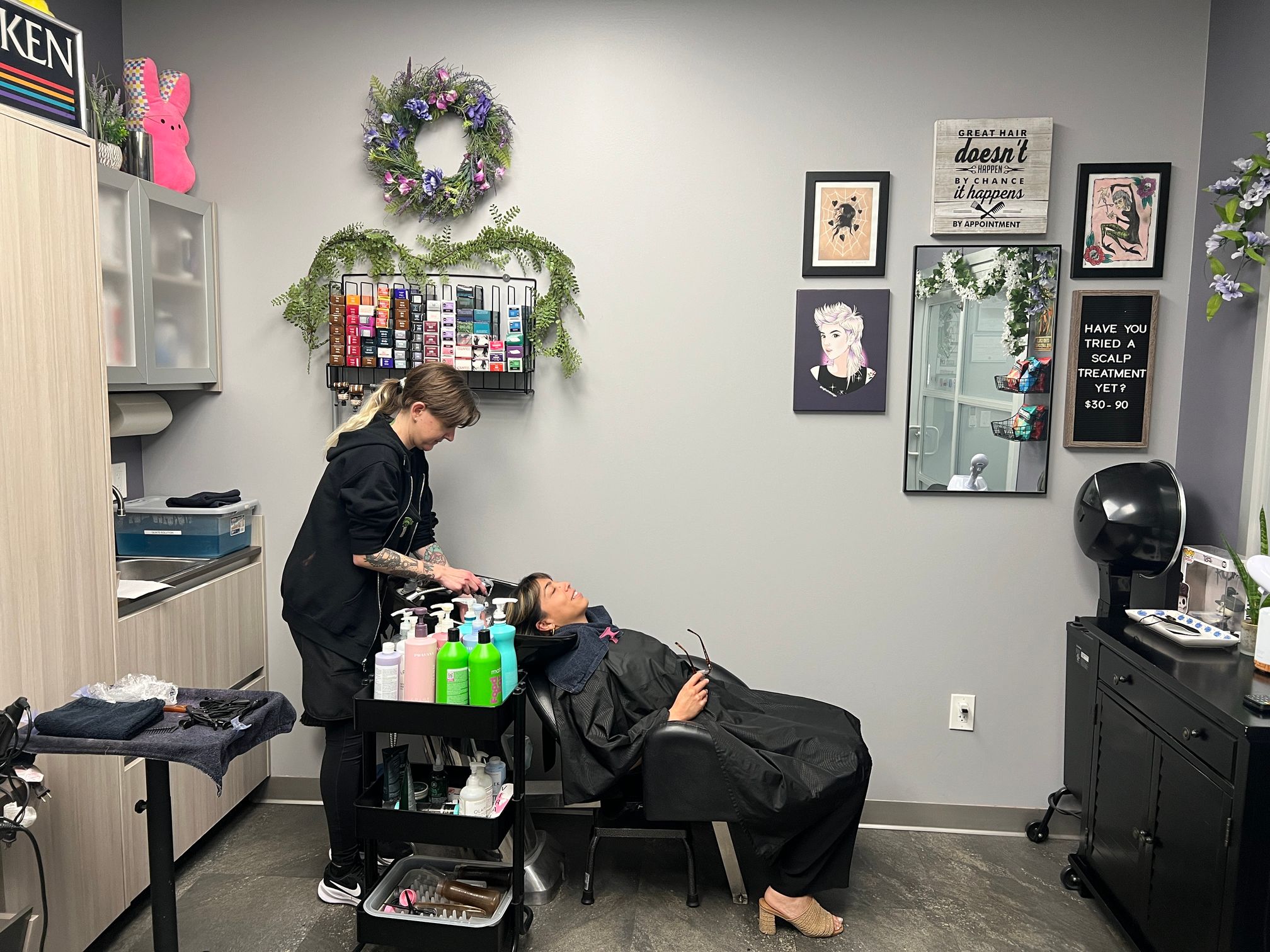(DENVER) — How does a business with no inventory or e-commerce strategy survive a recession and a pandemic?
For Dan Danbom, co-owner and bookseller at Printed Page Bookshop in Denver, the answer is simple: curation.
“Booksellers have a reputation of being anti-social curmudgeons, and it’s well earned,” Danbom told The Click. “But, I thought, why be that way? Wouldn’t it be nice to have a bookstore where people knew your name and treated you well?”
Danbom says that he and his business partner, John Frantzen, opened the store in August 2009 — during the last big economic recession — after Danbom got bored in retirement. The duo founded Printed Page as a cooperative and now operates alongside eight hand-selected local booksellers all under one roof.
This business model means the Printed Page itself has no inventory — even though the 900 sq. ft. sales room is filled with books — and no overhead costs because it relies on its member’s stock and sales to pay the rent, which all 10 booksellers split evenly. Those who do not sell enough books to cover their share of the rent must pay the difference to Printed Page while booksellers who exceed their share receive a check from the business.
While other bookstores carry the newest releases or modern editions of classic titles, Danbom said the Printed Page curates its selection based on conversations booksellers have with customers in the store. Oftentimes, this means Danbom and the other Printed Page sellers won’t buy a book unless they can think of a buyer for it. He said this personal touch is what separates the 12-year-old bookstore from its competitors, even those that are on the same block.
“Fundamentally, it’s our belief that bookselling is a relationship activity,” said Danbom. “We have been very diligent in getting to know our customers. We want to know who they are, how we can reach them, and what are their interests. And that informs our buying.”
Danblom said this strategy was difficult to execute early on in the pandemic because Printed Page is very reliant on foot-traffic to generate revenue. But years of diligently building the businesses one relationship at a time allowed the Printed Page to capitalize on the number of people in its network who downsized their book collection during the pandemic.
For example, Danbom said he met several people who needed to offload some of their titles or entire collections to pay their rent and utility bills. Others contacted him hoping to sell books that belonged to loved ones that were lost to COVID-19. This would put Printed Page among the 6.5% of Denver-area businesses that reported experiencing a moderate positive impact from the pandemic, according to the latest Small Business Survey from the Census Bureau.
Now, business is slowly going back to normal. Even though the company can’t afford a complex marketing strategy, it continues to reach new customers through a monthly newsletter, a mailing list, and a few local events. According to Danbom, the business has grown so much that there is a waitlist for new booksellers to get on its shelves.
And the booksellers at Printed Page are no slouches either. For example, Danbom and Frantzen are both graduates of the Colorado Antiquarian Book Seminar, a week-long intensive course on the bookselling business, according to the business’ website. Danbom also subscribes to several bookselling magazines and journals to stay abreast of industry trends. Booksellers must demonstrate a comparable level of dedication during their application process before they can rent shelf space at Printed Page, and that reputation for personalized attention to detail has become the store’s calling card.
“I view it almost as a game. I wake up in the morning and ask ‘who can I sell a book to?’ and ‘what can I do to build the businesses?’” said Danbom. “It’s been very satisfying.”


